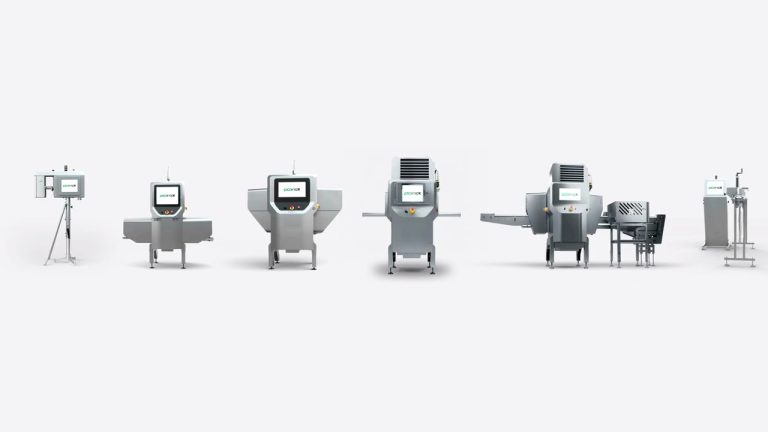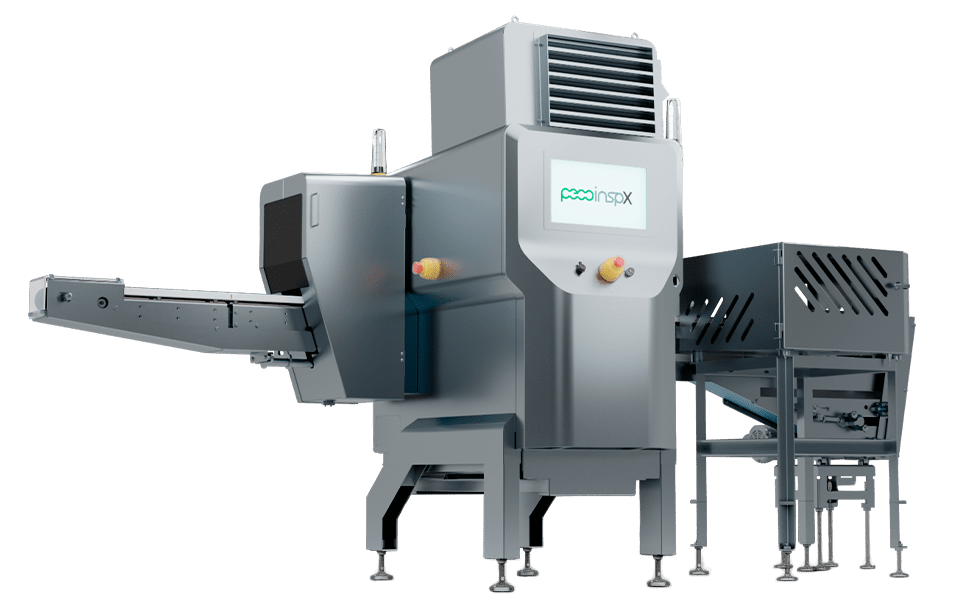When buying an X-ray Machine, there’s a lot of information you have to amass. But we want to make it simple. This is an approachable topic and we want you to feel well-informed.
We encourage everyone to read our X-ray inspection machine white paper, which details a lot of the concepts that will be covered in this blog.
- Consider your application
Are you inspecting cans? Inspecting glass? Jars? Raw product? There’s expertise the vendor needs for each one of those applications. Even if you’re inspecting boxes, there’s still information and engineering data about how well that system integrates into your line that’s important. These are not “one size fits all” products.
- Flexible Machines
As technology evolves, you need to fine-tune your application to have even better performance.
The flexibility of machine design is so important. You may be inspecting one product today, but then decide to sell an additional product – you should be able to inspect that new product with the same machine you bought for the prior product.
- Real-World Needs
You want to make sure whatever machine you buy can reliably meet whatever quality specifications you have for your product. When you look at test reports, it’s extremely important to understand what specifically the vendor is doing to demonstrate the equipment; so you have confidence that those performance capabilities are achievable in the product you install in your plant.
Speed, conveyance, design: all important when buying what’s right for you to meet your needs. When you install the system, the vendor should demonstrate these performances, so you know what you’re working with upfront.
Keep in mind that some applications are difficult to simulate in a lab. Peco InspX software does have special correction capability for that so there are fewer false rejects. But if you can’t simulate something in a lab, understand why not and what that means when you install the machine.
Make sure reliability is clearly understood. Whatever you’re buying, if it needs maintenance and service, your partner’s response to those issues is consistent with what you need. If your expectation is you’re running 24/7 and you have one session of downtime every two months, you can’t use a vendor that says, “our response time is every two weeks”.
- Machine Design
Fundamentally, X-ray machines are components of other systems that you buy – they’re designed to be integrated. The reason some systems are more expensive is that more work goes into designing and proving that they can operate the way they’re supposed to.
For example, every X-ray tube that Peco InspX buys is performance tested to make sure it will meet the criteria that we have as a company. All that extra engineering work results in a much more reliable machine – but it also makes the machine slightly more expensive (though the result is a much better package for you).
Make sure you clearly understand how the design is going to meet the needs of your application.
- Reliability and Warranty
We mentioned reliability under “real-world needs”, but we’ll dive in deeper here.
Reliability, while usually referring to how long the machines last, can also mean “spare parts”. How easy is it to find the parts you need in a vendor’s stock?
There are a lot of warranties on X-ray machines that may say good because they’re broad. That’s great because you want your warranty to cover a lot of aspects – but this also gets tricky because there may not be specifics that cover detailed problems.
Peco InspX warranties are simple and specific: the expensive components in the machine, the tube, and the detector have slightly different warranties because one is more usage-driven than the other.
- The X-ray tube has a 3-year warranty on our side-view machines and is unconditional. That means if the machine tube breaks at any point in that warranty, you get a new one. Most companies in the industry have a pro-rated warranty, which means you pay based on how much you’ve used.
- Our spare parts are stocked worldwide. We have specific commitments we make to customers about how much they’ll be readily available.
- For tubes and detectors, the warranty doesn’t start until you put the components in the machine. This is our way of giving you comfort: if you buy some spare parts but don’t use them until years later, the warranty will still apply.
- Process
What’s the process the vendor uses to do your application engineering? Are the drawings and documents they provide you consistent with your expectations? If you need custom engineering work, can the vendor provide that? Or is it simply, “here’s the drawing for the machine you bought – the rest is up to you”?
Then there’s the testing process. We encourage all our customers to do FATs. Peco InspX can do them remotely but our point is making sure you’re 100% confident that once the machine ships, it’s going to work properly for your applications. Afterward, there’s a process for training and support. How does the vendor do that?
We have a sophisticated worldwide help desk staffed by engineers. Being worldwide also means our engineers speak multiple languages, so we can communicate with a wide range of customers. So when you call, someone who’s awake and working will help you. We’re obsessive about making sure we answer the phone within 30 seconds!
If your machine is down, every second count. Make sure your needs as a customer are taken care of by the vendor’s support process.
Where are the machines made? Most of the time, companies need machines quickly. If you’re launching a new product in the next week, and your vendor can only get you a machine within the next six months, that’s a situation that doesn’t work for you. Consider where the machine is made to decide if it’s close enough to get to you quickly.
Peco InspX works hard with our customers to understand their tactical and strategic business needs so that we can build the machines when they need them, and ship them from Silicon Valley.
- Quality Management Systems
We put a lot of automation into our systems so they do a comprehensive job of proving that everything’s inspected. A lot of customers want that information. If you have any regulatory need to provide that information, the automation can provide that for you.
As you’re looking at vendors, some specialize in certain parts of the market. There are also special applications that people do. We build every type of X-ray machine imaginable, and do every application there is. If you need a custom-build machine, we do those as well.
In summation:
Hopefully, this blog gives you some insight into what to consider when buying a machine; and gives some explanation on why some are more expensive than others. You want to make sure when you look at the machine, the total cost of value and ownership works for your organization.
If you’re inspecting glass at very high speeds, and something goes wrong, the opportunity cost for that is huge. If you’re working with a vendor that has a more expensive machine that lowers the risks, that makes sense.
Peco InspX strives for transparency: we can tell you how long components will last; we can tell you exactly what goes into our machines; we store all our images; we can give you a lot of confidence about what it’s like to own the machine.
Subscribe to our LinkedIn, and Twitter, and visit our website to learn about our constantly innovative company.
If you want more helpful resources from Peco InspX visit https://www.peco-inspx.com/lp/resources




